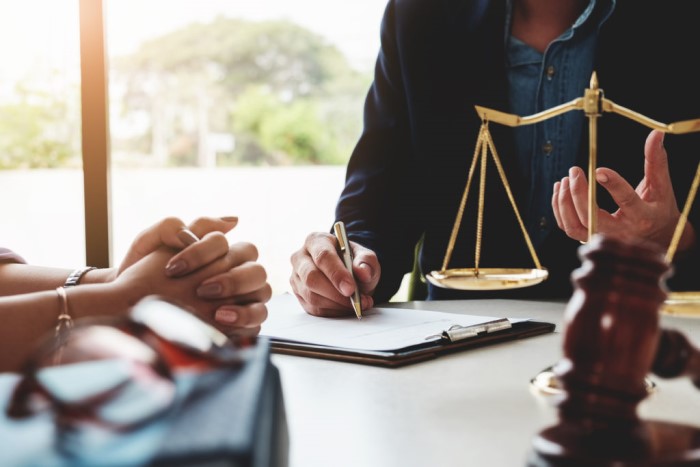
Discover vital strategies for maintaining confidentiality in abuse cases. Learn how to protect your privacy during legal proceedings effectively.
Introduction
In the realm of legal proceedings involving abuse cases, safeguarding confidentiality is paramount. Whether you’re a survivor seeking justice or a concerned party involved in the process, ensuring your privacy remains intact is crucial. This comprehensive guide unveils seven essential steps to uphold confidentiality in abuse cases, empowering you with the knowledge needed to navigate legal proceedings while safeguarding your privacy.
The Importance of Confidentiality in Abuse Cases
Confidentiality in abuse cases serves as a shield, guarding survivors, witnesses, and involved parties from undue exposure and potential harm. It fosters an environment of trust, encouraging survivors to come forward without fear of retaliation or breach of privacy. By preserving confidentiality, individuals can seek legal recourse while minimizing the risk of further trauma or repercussions.
Understanding Legal Protections
Confidentiality Laws and Regulations
Legal frameworks exist to protect the confidentiality of individuals involved in abuse cases. These laws vary by jurisdiction but commonly include provisions for anonymity, restricted access to sensitive information, and penalties for breaches of confidentiality.
Role of Legal Counsel
Seeking competent legal counsel is vital in navigating abuse cases while safeguarding confidentiality. Attorneys specializing in such cases can provide expert guidance on preserving privacy rights and ensuring compliance with applicable laws and regulations.
Steps to Ensure Confidentiality in Abuse Cases
1. Secure Communication Channels
Utilize encrypted communication platforms and secure channels when discussing sensitive information related to abuse cases. This prevents unauthorized access and interception of confidential communications.
2. Limit Disclosure of Personal Information
Exercise caution when sharing personal information, both online and offline. Minimize the dissemination of sensitive details to trusted individuals and legal professionals directly involved in the case.
3. Implement Non-Disclosure Agreements (NDAs)
When engaging with third parties, such as therapists, counselors, or support groups, consider implementing non-disclosure agreements. These legal documents establish clear expectations regarding confidentiality and prevent unauthorized sharing of sensitive information.
4. Courtroom Procedures and Protective Orders
Familiarize yourself with courtroom procedures and seek protective orders when necessary to safeguard confidentiality during legal proceedings. These orders restrict access to sensitive information and prohibit its disclosure to unauthorized parties.
5. Psychological Support and Counseling
Prioritize your mental and emotional well-being by seeking psychological support and counseling services. Confidentiality is upheld within therapeutic settings, allowing individuals to process trauma and navigate legal proceedings with greater resilience.
6. Monitor Online Presence
Be vigilant about your online presence and take proactive measures to protect your privacy. Adjust privacy settings on social media platforms, refrain from sharing sensitive details publicly, and exercise discretion when interacting online.
7. Advocate for Policy Reform
Participate in advocacy efforts aimed at reforming policies and legislation related to confidentiality in abuse cases. By amplifying survivor voices and advocating for systemic change, you contribute to the protection of privacy rights for all individuals impacted by abuse.
Frequently Asked Questions (FAQs)
- How can I prevent unauthorized individuals from accessing my confidential information? Utilize encryption software, password protection, and secure communication channels to restrict access to sensitive data.
- What should I do if I suspect a breach of confidentiality? Immediately notify your legal counsel and relevant authorities to address and rectify the situation promptly.
- Are there any exceptions to confidentiality laws in abuse cases? While confidentiality is generally upheld, certain circumstances, such as imminent danger or legal requirements, may necessitate disclosure of information.
- Can I request anonymity during legal proceedings? Yes, individuals involved in abuse cases can often request anonymity or restricted access to personal information to protect their privacy.
- How can I ensure my confidentiality rights are upheld by legal professionals? Choose reputable legal counsel with experience in handling abuse cases and prioritize open communication regarding confidentiality concerns.
- What recourse do I have if my confidentiality rights are violated? Consult with legal experts to explore options for seeking recourse, such as filing complaints or pursuing legal action against parties responsible for breaches of confidentiality.
Conclusion
Confidentiality in abuse cases is not merely a legal obligation but a fundamental human right. By implementing the strategies outlined in this guide and advocating for policy reform, individuals can assert their privacy rights while seeking justice and healing. Remember, safeguarding confidentiality empowers survivors and fosters a climate of trust and support within our communities.






